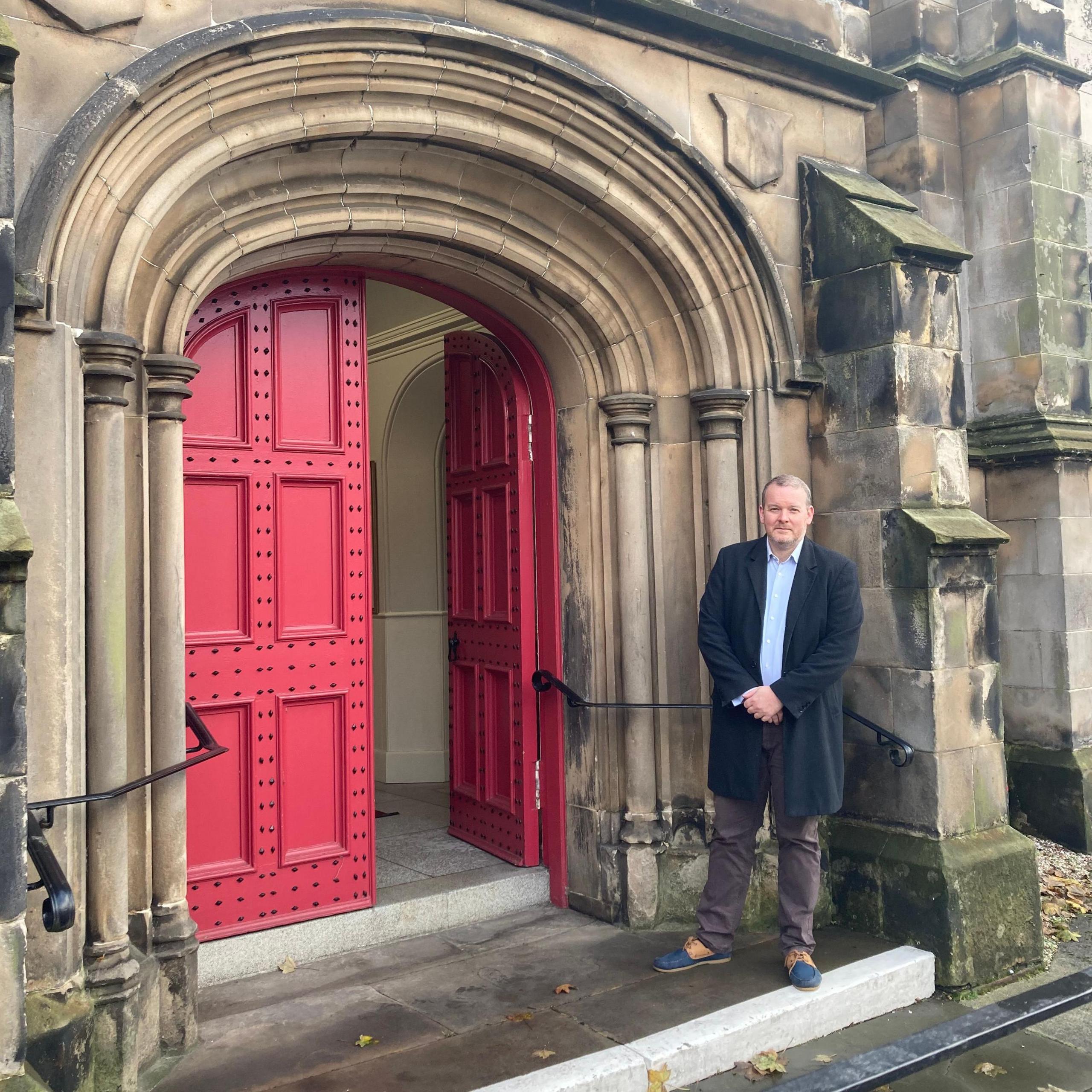Council to consult on demolishing theatre over RAAC fears

East Lothian Council will consult on plans to demolish Brunton Theatre due to concerns over RAAC in its roof panelling
- Published
East Lothian Council have voted unanimously to close the Brunton Theatre due to concerns over dangerous concrete and will consult on demolishing the building.
Councillors said it was “a heartbreaking decision” but one they had to make to make following the discovery of Reinforced Autoclaved Aerated Concrete (RAAC) in roof panelling.
They heard from experts that the entire roof space was compromised and that repairing the building was untenable.
The council will now consult with the community on demolishing the complex, but campaigners want a replacement built on the same site.
'We live in fear our roof is going to collapse'
- Published11 May 2024
What is RAAC concrete and why is it a safety risk?
- Published19 September 2023
Parts of the theatre and attached halls, which also housed council housing and social services, were "zoned off" 18 months ago due to fears over the presence of RAAC in the roof.
Panels containing RAAC have a design life of about 30 years, but those used in the Brunton Theatre, which opened in 1971, are now more than 50 years old.
Performances at the theatre were temporarily moved elsewhere in the region until it was decided whether the building would remain viable.
But a report to councillors stated the cost of repairing the concrete in the roof panels would be “unaffordable”.
Demolition of the complex is estimated to cost about £3.6m.
The Brunton Theatre Trust, which has run the venue since 1994, said it wanted a new arts complex built on the same site to keep it “at the heart of the Musselburgh community”.
A petition for a replacement has amassed more than 1,500 signatures online.
Councillors have pledged to write to the UK and Scottish governments for support to rebuild the facility.

Brunton Theatre Trust chairman Michael Stitt said the charity was facing a "perfect storm"
The trust's chairman, Michael Stitt, said it was facing a "perfect storm" of pressures due to funding issues and the closure of the building.
Alternative performance venues, including the theatre at Loretto School and Haddington Corn Exchange, are currently being used by Brunton Theatre Trust to deliver the programme of events.
The Northesk Church across the road has also been used by the trust and Mr Stitt said it would "never give up" on efforts to maintain its presence in the town.
He said: “The Brunton was and is an extremely successful theatre and while there has been this extreme bad luck to conspire against it, we can’t give up on that.
"I would like a new theatre to be on the same site. It is a unique and special site, it is very much at the heart of Musselburgh. It has easy transport links and it is where our audience is.
“Regional theatres like this are the lifeblood of the arts community and it is absolutely vital that they survive."
Mr Stitt added: "We are in a perfect storm of issues here but we are continuing to press on and look to our future."
'Untenable'
Safety inspections on the building were carried out after concerns about RAAC became public.
Deteriorating panels meant parts of the building were closed off.
Engineers later determined its condition meant it was “likely” there would be a structural failing at the building within two years.
East Lothian Council warned it could take up to six months for services currently based in the Brunton Hall to be relocated.
Some will be housed in Haddington's John Muir House, while the the Musselburgh Community Housing Team and face-to-face customer service will move to the former Citizens' Advice Bureau on the town's High Street.
Tom Reid, head of infrastructure for East Lothian Council, described the theatre as a "landmark" building and said every available option to maintain it had been assessed.
He said: "We’ve looked at every opportunity that could be looked at. Just to do the roof alone would cost about £22m, and that is not doing anything to the fabric of the building, we’re not making it sustainable and then if you were just to do a basic replacement, like for like, you are looking at £50m to £60m.
“It’s untenable, but what is important, it has to close for safety, but we have to engage with the community because a building is a housing for communities to come together for arts and for services.
“What it hosted is what is important. The trust has done incredibly well to maintain its arts offering at different venues and we need to work together to make sure we have something at the back end of this."

There are few centres which spark the kind of love and loyalty the Brunton does.
That’s partly down to its location, a huge complex in the heart of the small community of Musselburgh.
Over the past five decades, it has hosted weddings, and birthday parties, allowed births and deaths to be registered and programmed an eclectic selection of shows. Janey Godley, Jenny Éclair, Hue & Cry and Jason Donovan have all performed here.
So have scores of amateurs in dance shows and pantomimes and it is they who will be vital to the theatre’s revival.
For the past 18 months, the Brunton Theatre Trust have continued to programme work in three spaces in Musselburgh and Haddington.
While not under one roof, they have kept the spirit of Brunton Theatre alive and that despite a cut to their own budget from East Lothian Council, and uncertainty over funding from Creative Scotland. They have exhausted their own reserves in the process and urgently need funding to continue.
The work they produce will be vital to the community campaign to rebuild the Brunton. As will the outpouring of support from across the country. They must now channel that into securing financial support in the toughest of times.
It may seem like a local story, relevant to one small community but regional theatres like the Brunton aren’t just the life blood of this small town, but the whole sector. And its survival will be rooted for, across the whole of the UK.